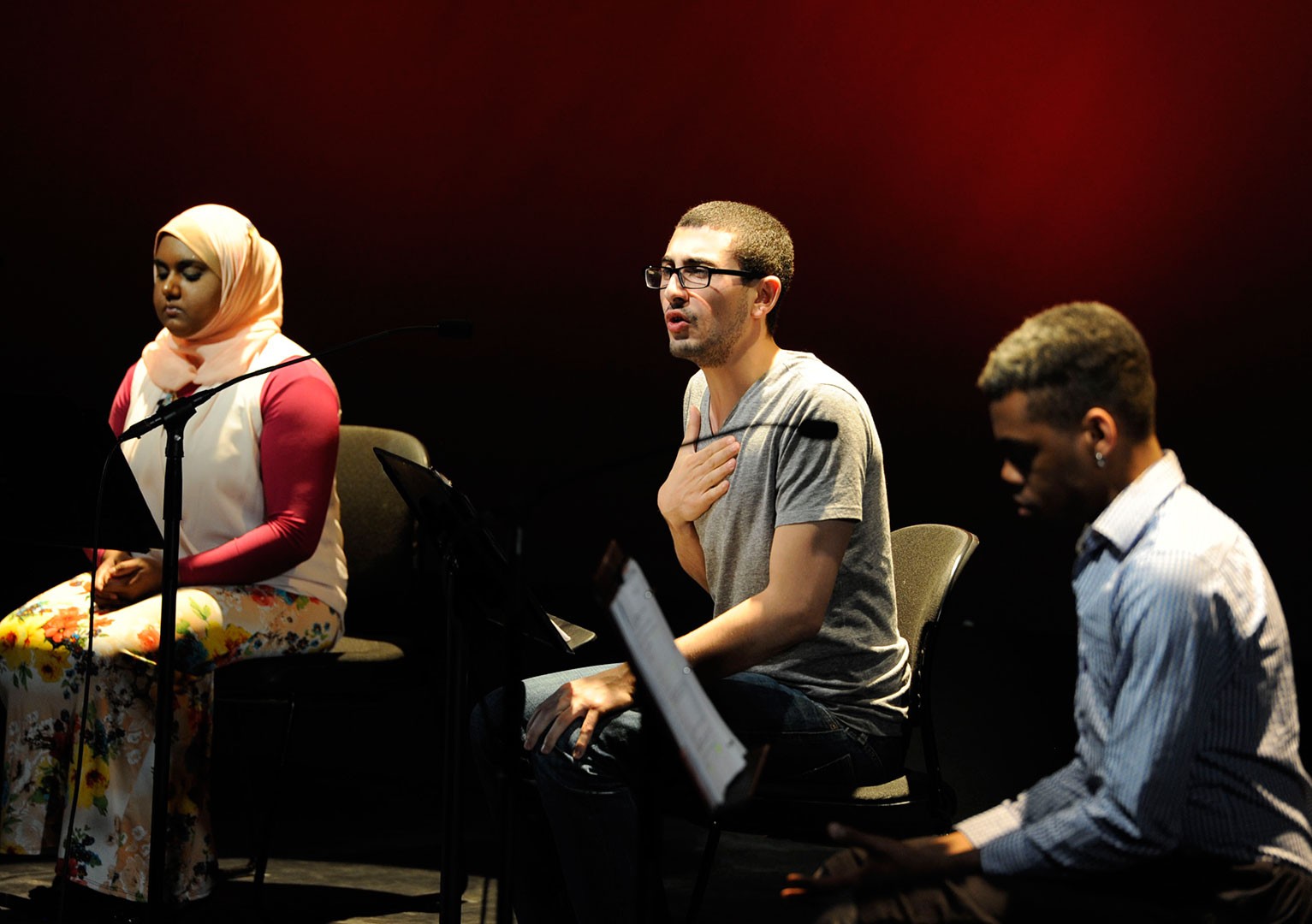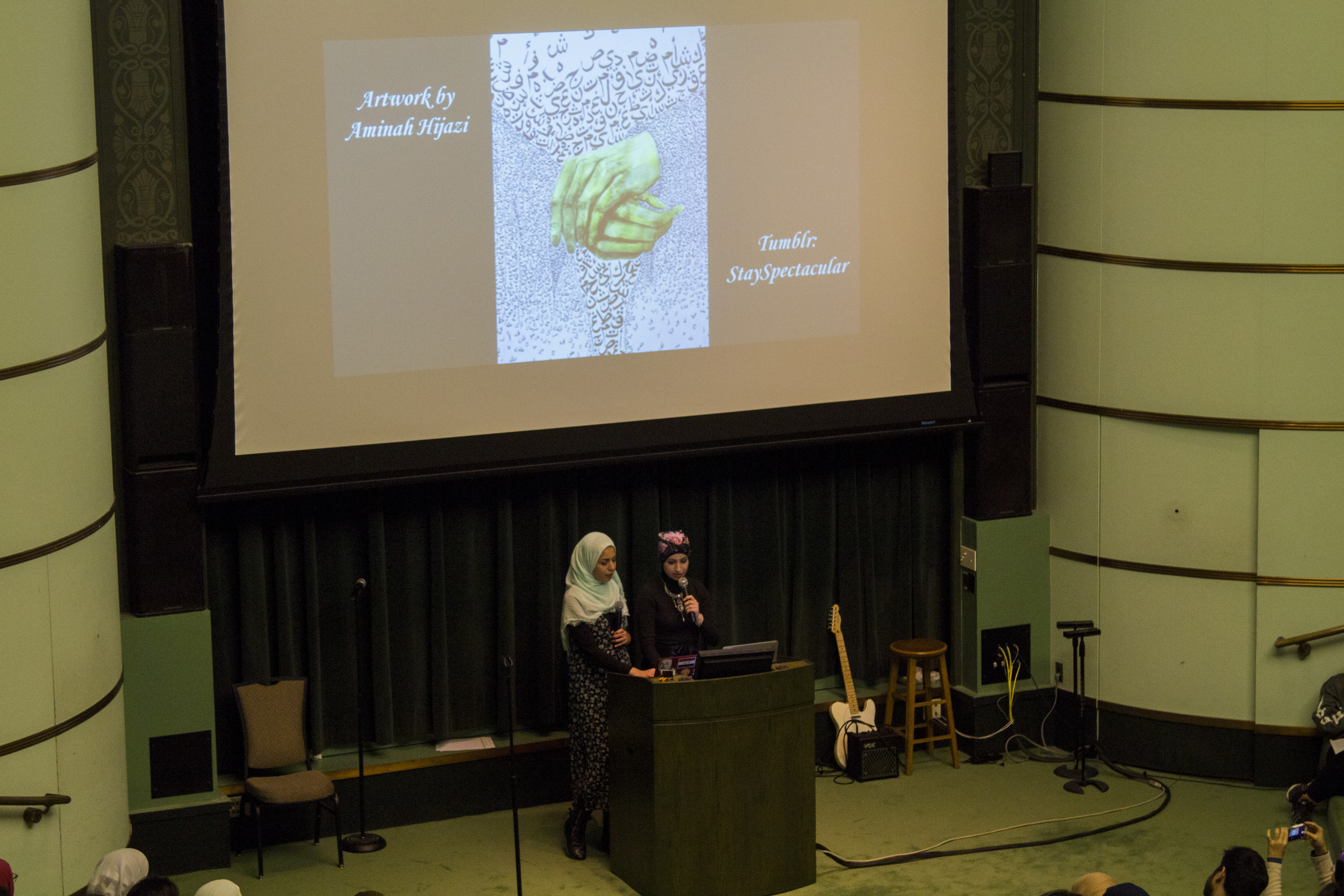Twenty minutes before the event started, the 4th floor Rackham Auditorium was already packed. Students, friends, family, and curious people filled the seats, the stairs, the walls, and the walkways. Organizers had to repeatedly clear the overflowing doorways, and we we were repeatedly warned that if any more audience members came, it would be a fire hazard and Rackham would have to shut the event down.  Both sophomore event organizers, Alyiah and Fatima, introduced Halfway Hijabi as an event for Muslim women who wore hijabs (headscarves) to “reclaim our voices and our space rather than having others speak on our behalf.”
Both sophomore event organizers, Alyiah and Fatima, introduced Halfway Hijabi as an event for Muslim women who wore hijabs (headscarves) to “reclaim our voices and our space rather than having others speak on our behalf.”
To create a safe space, photographs and video recording by audience members was not allowed. All that really mattered, however, were the words that flowed out of these powerful, well-spoken women.
The first of many female performers read an essay speaking of themes that would become a common thread throughout the night. Anger and humiliation at being forcibly strip searched at an airport because she had a metal leg brace. Comments like “you look like you came out of Iraq” and “This is America sweetheart–you can take that [the hijab] off now.” She ended with the words “I do not allow the hijab to limit me, so why do you?”
Another performer talked of women reclaiming the American flag from a symbol of oppression to a symbol of pride by wearing the design on headscarves.
Most of the performers were students, and they pointed out how often they walk into a room and find that they are the only hijabi, and having to represent the entire Muslim population.
Although many of the performances were raw and heartbreaking, a few of the women lightened the mood. One international student from Malaysia read a short speech regarding her reasons for wearing her hijab, and comparing what it was like to wear one in Malaysia versus the US. She concluded that “I was told that God wants me to wear hijab and actually I’m okay with that” and then hilariously quoted Miley Cyrus when she said “only God can judge us.”
The one musical piece of the night was naturally one of the saddest songs ever created: a rendition of Leonard Cohen/Jeff Buckley’s Hallelujah. It was not only beautifully sung, but also refreshing to hear it sung in this context.
My only regret about the event is that it wasn’t in Rackham’s larger auditorium. The Hijabi Monologues is the kind of event that should be shown to as many students as possible, because much of the hate and rudeness that these women experienced comes from ignorance.






